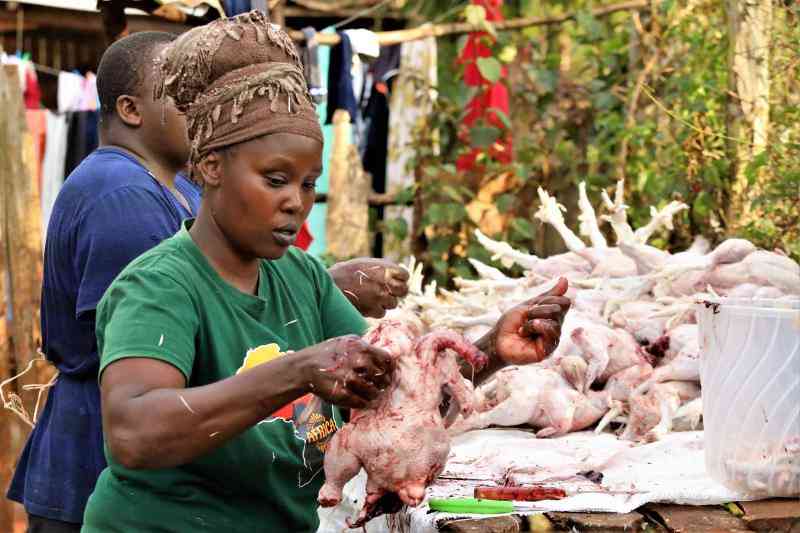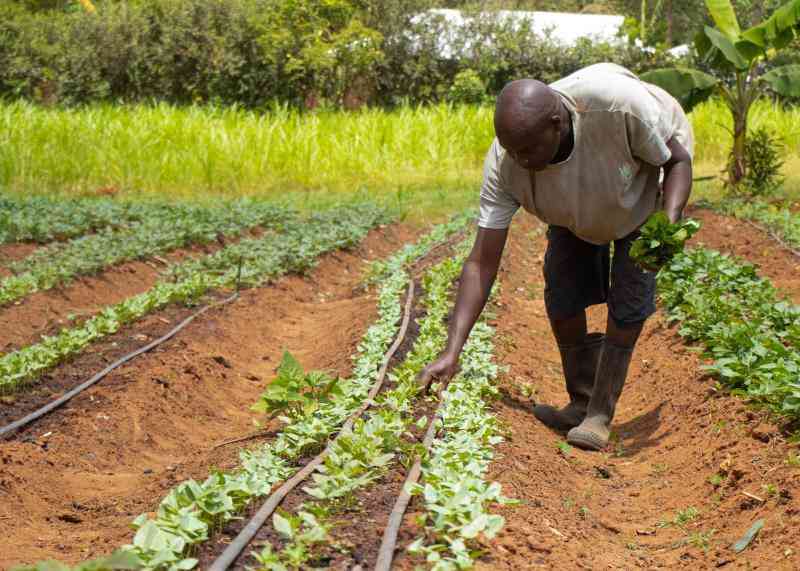What aspiring young farmers need to know
Well, do not be confused if you are an aspiring farmer and think you can generate fat incomes overnight. This is where most young farmers have gone wrong, lost hope and thrown in the towel - because of engaging in agribusiness after listening to many success stories.
We all at one time reached that point where it seems like going forward is impossible. When you’re already overwhelmed, it’s easy to talk yourself into giving up on farming. However, giving up too soon could cause you to miss out on success.
Hang in there you never know how soon you might start seeing progress. To succeed in this sector, it is important to acquire entrepreneurial skills, some of which are: embracing technology to market your products and expand your scope of information, avoid selling your farm produce through middle-men rather approach the market head-on, think value addition and agro-processing to attract higher returns for your farm products, partner with finance institutions that offer flexible financial packages and invest in learning and entrepreneurial hubs such as the one’s offered by Vijana Reloaded, Young African Leaders Initiative (YALI) or Emerging Leaders Foundation.
Start Small
By starting small, you will use the little resources you have to grow naturally. This way there will not be many expenses incurred.
In addition, you will have build-up enough experience that will help you to even come up with custom made solutions to help you with farm problems. Overspending too should be avoided at the start of the journey.
For example, if you want to plant cabbages and you do not have money to buy the expensive hybrid seeds, why don’t you instead buy the normal seeds and save the money.
By doing this you will have enabled yourself to spread out your money and buy other farm implements that will be required during the growing period e.g. insecticides, fungicides and D.A.P. Being frugal in the beginning can be the difference between success and a failed agribusiness.
Farming Takes Time
If you hear successful stories, chances are that farmers in Kenya have done it before and it’s not their first agribusiness venture. Most successful farmers have tried, failed, tried, failed, and tried again and eventually succeeded.
They didn’t call each iteration a failure. They called it a way to improve, because each test, each trial, gave them new information which influenced and improved the next model. Not getting it right the first time, or the 100th time, is not a sign that you should quit. It’s simply a way for you to keep learning how to do it better next time.
We’ve all heard stories of the overnight rise to richness. But the truth is that what looks like an instant or overnight success is always preceded by years of struggle and work. There’s a long, hard road to success, but when success hits, we only focus on the last mile or so. It looks so easy and makes for such a great story, that we ignore the miles and miles of obscurity, difficulty, and perseverance required to get to that hilltop of glory.
Try the right thing
Practise what you are well familiar with and grow what you know. Always ensure you have done your research well and you have all the knowledge and skills at your disposal. This will enhance your chances of success in the agribusiness you want to venture into.
In addition, it will reduce the outside help that may have increased the expenses into the agribusiness. In most cases, having the knowledge and experience in a certain farming venture is all it needs to succeed.
Finally, you will wear many hats as a farmer and it will require the majority of your time and energy if you are to make it. Agribusiness is not hard neither is it simple. It requires patience, persistence, and dedication.
[The writer is a researcher, PHD in Finance candidate, Jomo Kenyatta University of Agriculture and Technology, and CEO of Splendid Mushroom Enterprise]
Want to get latest farming tips and videos?
Join Us
Share this article on social
 The Standard Group Plc is a multi-media organization
with investments in media platforms spanning newspaper print operations,
television, radio broadcasting, digital and online services. The Standard Group
is recognized as a leading multi-media house in Kenya with a key influence in
matters of national and international interest.
The Standard Group Plc is a multi-media organization
with investments in media platforms spanning newspaper print operations,
television, radio broadcasting, digital and online services. The Standard Group
is recognized as a leading multi-media house in Kenya with a key influence in
matters of national and international interest.
 The Standard Group Plc is a multi-media organization
with investments in media platforms spanning newspaper print operations,
television, radio broadcasting, digital and online services. The Standard Group
is recognized as a leading multi-media house in Kenya with a key influence in
matters of national and international interest.
The Standard Group Plc is a multi-media organization
with investments in media platforms spanning newspaper print operations,
television, radio broadcasting, digital and online services. The Standard Group
is recognized as a leading multi-media house in Kenya with a key influence in
matters of national and international interest.






